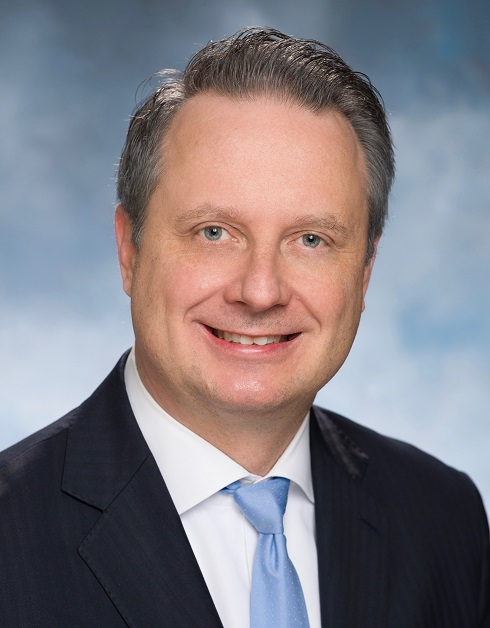More people are living longer after a cancer diagnosis than at any time in the past, thanks in part to new therapies and strategies for efficient diagnosis and effective cancer treatments. However, therapies such as chemotherapy, radiotherapy, immunotherapy, and other novel targeted treatments that are used to combat many cancers have the potential to pose a risk to cardiac health. This may occur acutely during therapy or years after treatment during survivorship. To combat these cardiotoxic side effects, clinicians can now turn to experts in the field of cardio-oncology who focus on the detection, monitoring, and treatment of patients for heart failure, hypertension, arrhythmias, and vascular disease.
Cardiology and oncology specialists at Robert Wood Johnson University Hospital, together with Rutgers Cancer Institute of New Jersey, offer patients a structured and highly collaborative Cardio-Oncology Program that is laser-focused on identifying and minimizing the risk of heart disease, throughout the cancer journey. For patients with preexisting heart disease, proactive steps are taken to detect, monitor, and treat cardiac conditions throughout a patient’s treatment and also after completion of therapy as part of survivorship.
 According to Andrew Evens, D.O., M.Sc., Associate Director for Clinical Services and Director, Lymphoma Program, Rutgers Cancer Institute Medical Director, Oncology Service Line, RWJBarnabas Health and attending physician at Robert Wood Johnson University Hospital, “As New Jersey’s only National Cancer Institute-designated Comprehensive Cancer Center, we deliver integrated cancer care across the health system with access to academic experts and innovative cancer therapies not available elsewhere in the state, including our state-of-the-art Cardio-Oncology Program.”
According to Andrew Evens, D.O., M.Sc., Associate Director for Clinical Services and Director, Lymphoma Program, Rutgers Cancer Institute Medical Director, Oncology Service Line, RWJBarnabas Health and attending physician at Robert Wood Johnson University Hospital, “As New Jersey’s only National Cancer Institute-designated Comprehensive Cancer Center, we deliver integrated cancer care across the health system with access to academic experts and innovative cancer therapies not available elsewhere in the state, including our state-of-the-art Cardio-Oncology Program.”
The Cardio-Oncology Program cares for an array of patient groups including adult pediatric cancer survivors not currently under the management of a cardiologist, or who desire additional consultation; individuals who have been diagnosed with cancer and treatments have been identified as being potentially harmful to the heart; individuals with cancer who have a pre-existing heart condition or have been identified as being at an increased risk for developing heart disease; and those who have completed cancer treatment and are experiencing cardiac issues or who may need closer surveillance due to prior potentially cardiotoxic treatments.
The Cardio-Oncology Program is currently offered at multiple hospitals within the RWJBarnabas Health system, including Robert Wood Johnson University Hospital, Newark Beth Israel Medical Center, Clara Maass Medical Center and Saint Barnabas Medical Center.
RWJBarnabas Cardio-Oncology
Enhanced Safety at Robert Wood Johnson University Hospital
Throughout the COVID-19 pandemic, many patients have been nervous about seeking routine and essential oncology and cardiovascular care. However, this mentality can have severe consequences, as a critical event, like a stroke or myocardial infarction, will not wait until the coronavirus disappears.
To ensure the safest and highest quality oncology and cardiovascular care, RWJUH has implemented preventive protocols that include ongoing COVID-19 screening, universal COVID-19 testing for all surgery and cardiac catheterization patients and staff, as well as in-hospital temperature screening checkpoints with no-touch thermometers. Additionally, all patients and staff are provided with face masks an necessary personal protective equipment (PPE) to be worn at all times. Patient exposure is limited to essential staff in designated cardiac care areas and our rigorous sanitation procedures have been expanded to include greater frequency and Tru-D UV Light Disinfection.
Minimized in-hospital time: Our consultation, evaluation, treatment, and discharge processes are focused on greater convenience, improved access, and optimized time to treatment to support minimizing the duration of time spent in the hospital. This includes:
- Pre-Admission: Telehealth virtual medical consultations prior to procedures, streamlined “one-stop-shop” pre-admission testing, and designated parking and a separate entrance for incoming hospital patients
- In-hospital: Regular status updates to families regarding their loved ones and video chat options to maximize patient’s connections with family members
- Discharge: Continuous, remote monitoring of patients at home and post-procedure telehealth virtual medical consultations